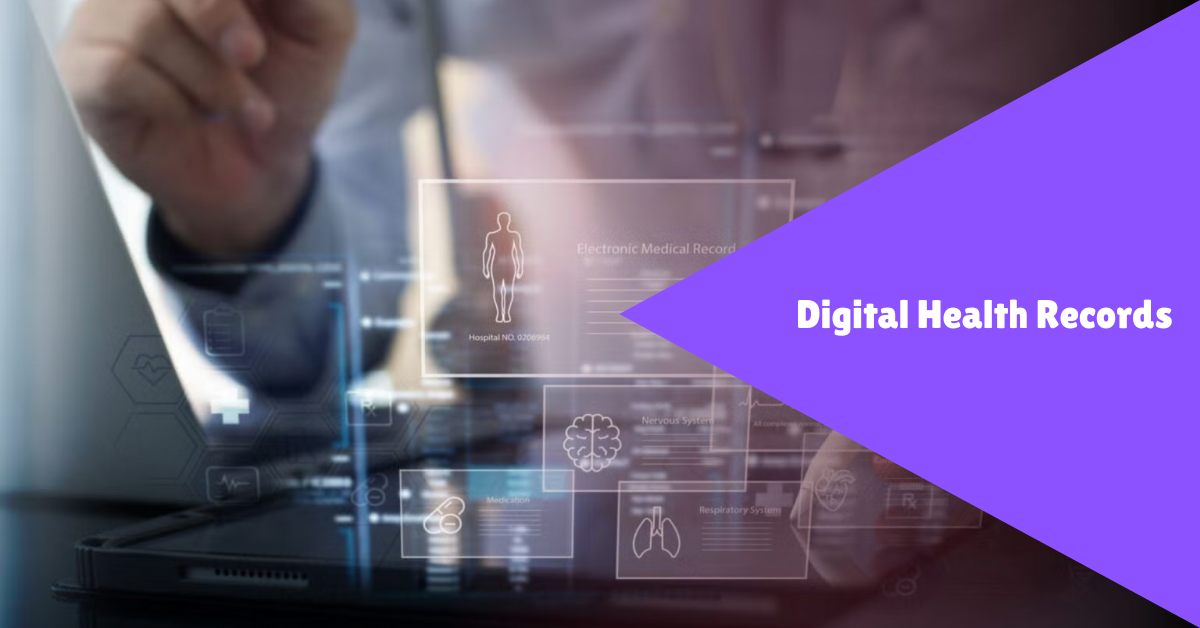In today’s digital world, the digitization of health records is becoming essential for delivering faster, safer, and more efficient healthcare services. From large hospitals in metro cities to local clinics in rural areas, India is slowly embracing digital health records to improve patient care and reduce paperwork. Let’s explore what digitization of health records means, why it matters, and how it’s being implemented across India.
What Is Digitization of Health Records?
Digitization of health records means converting a patient’s medical history—including prescriptions, test results, vaccination records, diagnoses, and treatment plans—into digital formats that can be stored and accessed electronically.
Instead of keeping bulky files and handwritten notes, doctors and hospitals now use Electronic Health Records (EHRs) or Digital Health IDs to store this information.
Understanding Digitization of Health Records Important in India
India has a massive and diverse healthcare system, and digitization helps solve many long-standing problems like:
- Lost or incomplete paper records
- Delayed treatments due to a lack of past data
- Difficulty sharing patient information between doctors
- Time-consuming paperwork
By digitizing records, healthcare becomes faster, more accurate, and accessible, especially in emergencies or remote locations.
Key Benefits of Digitization of Health Records
1. Improved Patient Safety
Doctors can quickly view a patient’s history, allergies, and medications, reducing the risk of mistakes or drug interactions.
2. Faster and Smarter Care
With instant access to past reports, diagnoses, and scans, treatment decisions are quicker and better informed.
3. Better Record-Keeping
No more lost files or faded prescriptions. Digital records are securely stored and easy to update.
4. Access from Anywhere
Patients can carry their health records digitally and access them from any doctor, clinic, or hospital—ideal for people who travel or relocate.
5. Time and Cost Saving
Reduces time spent filling out forms and helps hospitals reduce printing and storage costs.
Indian Initiatives Supporting Digitization of Health Records
1. Ayushman Bharat Digital Mission (ABDM)
- Launched by the Government of India
- Provides every Indian citizen with a unique Digital Health ID
- Allows secure sharing of health data across doctors, hospitals, and labs
- Over 45 crore health records already linked to the system (as of 2025)
2. eHospital by NIC (National Informatics Centre)
- A cloud-based hospital management system
- Used by over 400 government hospitals in India
- Supports digital OPD registration, diagnostics, billing, and records
Example: Digitization in Action
Dr. Ramesh’s Clinic, Bengaluru
Before digitization:
- Patients carried physical reports
- Follow-up appointments were delayed due to missing files
- Prescriptions were sometimes misread
After using a digital health repository system:
- All patient data is stored securely in one place
- Easy access to past notes, reports, and prescriptions
- Improved patient trust and satisfaction
Challenges in Digitizing Health Records in India
While the benefits are clear, India faces some hurdles:
- Low digital literacy in rural areas
- Lack of internet access in remote locations
- Resistance to change from some doctors or staff
- Data privacy and security concerns
But with government support and rising awareness, these challenges are slowly being addressed.
The Future of Digitization of Health Records in India
India is moving toward a unified health ecosystem where:
- All hospitals (private and public) use digital records
- Patients control their health data
- Records are safely shared across platforms and cities
- AI tools help doctors make smarter decisions using data
This future will improve not just healthcare quality but also help with disease tracking, public health planning, and faster emergency care.
Tips for Doctors and Clinics to Start Digitizing
- Start Small: Begin with OPD and prescriptions
- Choose the Right Software: Use trusted platforms with support for Indian languages
- Train Your Staff: Ensure everyone knows how to use the system
- Inform Your Patients: Encourage patients to carry their Digital Health ID
- Ensure Data Security: Use tools with encryption and password protection
Conclusion
The digitization of health records is transforming Indian healthcare, from rural clinics to urban hospitals. It empowers patients, improves doctor efficiency, and builds a more connected and reliable health system.
For India to achieve its vision of “Digital Health for All,” doctors, patients, and policymakers must continue adopting and supporting digital solutions. Whether you’re a parent managing your child’s vaccine schedule or a hospital administrator looking to reduce paperwork, digital health records are the future.
To check the medical records of your children digitally, you need proper knowledge of digital health records. For that, you can visit our KidsCur site for all the information required!
FAQs
1. What is the digitization of health records?
Digitization of health records refers to converting paper-based medical documents into digital formats using electronic health record (EHR) systems. This allows for easy storage, secure access, and quick sharing of patient information among healthcare providers in India.
2. How does digitization of health records benefit Indian patients?
Indian patients benefit through faster treatments, reduced medical errors, better doctor coordination, and 24/7 access to their health history—even when switching cities or doctors. It also simplifies tasks like vaccination tracking and lab report sharing.
3. Is digitization of health records secure in India?
Yes. With initiatives like the Ayushman Bharat Digital Mission, the Indian government enforces strict data protection protocols. Most digital health platforms use encryption, login authentication, and consent-based data sharing to ensure patient privacy and security.

